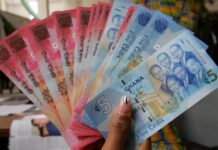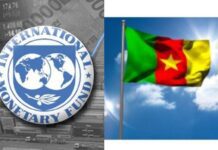Non Resident Holdings: S/Africa Exposes to Foreign Investors’ Sentiment Shift
Non-resident holdings of South African domestic government debt are somewhat high, S&P Global said in its African domestic debt report, adding that this exposes the sovereign to shifts in foreign investor sentiment.
Foreign investors were noted to be attracted by Africa’s enormous economic potential, vibrant demographics, and rich financial returns, between 2015 and 2021 foreign creditors invested an estimated $140 billion in African sovereign foreign and domestic debt, according to IMF data.
This increased African general government debt to GDP levels by an average of 20 percentage points of GDP during the five years before the 2020 global pandemic, leading to a series of African sovereign downgrades.
SA foreign holdings of local currency debt dropped to a 10-year low of 25% of total government bonds in 2023, from slightly above 40% in 2017, the global rating agency said
These outflows have pressured the rand and the government’s financing costs. South Africa has limited exposure to foreign currency funding, with 90% of debt being rand-denominated–by far the strongest proportion among rated African sovereigns.
As non-residents have reduced their weight in South African bonds, domestic banks have increased their exposure to the government. Banks’ holdings of government debt rose to about 15% of total assets in 2023 from under 10% in 2015.
However, S&P thinks there is still room for the large banking system to continue to absorb additional government debt. “We note that the bank’s exposure to the sovereign remains lower than peers such as Brazil, Mexico, and Turkiye.
“South Africa has the largest non-bank financial sector of all the African sovereigns in this survey (219% of GDP), capturing domestic savings and providing a buffer against non-resident outflows.
“We view the pool of potential funding as significant and, along with South Africa’s broader monetary flexibility, an important factor in the higher sovereign rating in a regional context”, S&P Global Ratings said. The firm also views the government’s high interest burden as a credit weakness.
“Even though we expect fiscal deficits to gradually decline, the interest-to-revenue ratio will inch toward 20% through 2026 on the back of decreasing tax windfalls from commodity prices and higher domestic interest rates. Further sell-offs of government bonds by non-residents could put additional pressure on yields, in our view”, it said in the report.
The report noted that non-resident participation in local currency capital markets is a mixed blessing. It can supply domestic lending, but in less developed markets it can also create currency, interest rate, and balance-of-payments volatility during global market shifts–as Egypt has recently experienced.































































































